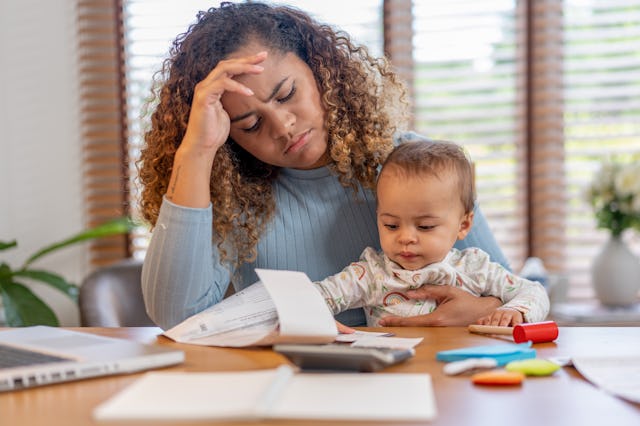Research Shows American Women Are Doomed For All Eternity, Obviously
Working moms are especially at risk for worsened mental health.

Last month, the Centers for Disease Control and Prevention (CDC) reported unprecedented level of hopelessness, depression, and suicidal thoughts among America's young women. The report notes that in 2021, three in five girls felt persistently sad and hopeless, a marker for depressive symptoms, up nearly 60% from 2011. The CDC also reported a 10% jump in teen girls’ feelings of sadness and hopelessness from 2019 to 2021.
Lack of parental support, an ever present climate crisis, the pandemic, gun violence, and lawmakers with plans to strip away a women’s and LGBTQIA persons rights are just a few factors that could attribute to this mental health crisis in young women.
And it’s not as though it always gets better with age. A recent poll found that 42% of working mothers surveyed were diagnosed with anxiety and/or depression in 2022, compared to 28% of the general population and 25% of child-free coworkers. Basically, the latest research shows that American women, young and old but especially moms, are essentially screwed.
The reasons are probably pretty obvious for many of us. First and foremost, women are still taking on more of the household responsibilities and caretaking than men.
One study from 2022 found women in the U.S. spend about four-and-a-half hours per day caring for their families and homes, while men spend about 2.8 hours a day on the same or similar tasks. This also includes family mental health care. The mental burden becomes even greater for working moms.
And when they do get a “break” from their job while on maternity leave, federal paid leave policies for working moms in the U.S. are less than ideal.
In fact, when going up against the 40 other developed countries, the U.S. came in dead last in terms of paid leave available to mothers and fathers. The U.S. is the only OECD (Organization for Economic Cooperation and Development) country that offered zero federally mandated weeks of maternity leave.
And while yes, there are some states in the U.S. that offer paid parental leave insurance programs to eligible workers, but those are scarce and difficult to be “eligible” for. After all, only 14% of civilian workers have access to any amount of paid parental leave.
Because of America’s pitiful terms for paid family leave, many moms are left in financial devastation from just a few weeks off to recover from their delivery and bond with their new child. Many women are forced to deplete their savings, take out personal loans, or rack up extra credit card debt to make up for the lost wages.
Oh, and since the pandemic began, 1 million U.S. women have left the workforce and not returned, reports the U.S. Chamber of Commerce. When moms do return to the office, they are oftentimes met with judgement and lack of flexibility that working parents frankly need in order to get by.
Of course, experts recommend that moms do their best to prioritize their own care, build a community, and work to fill their own cup before pouring into others. Which is — as we all know — way easier said than done.
In fact, a recent survey conducted by Calm found women “take less care of their own mental health after becoming a caregiver, while men take better care of themselves.”
The poll also revealed that in addition to higher rates of anxiety and depression, working moms are also the group least likely report that their mental health has worsened or to seek help for their mental health, and 40% of working mothers don’t think their mental health will ever return to its pre-pandemic state.
No wonder everyone is always talking about how moms are these omnipotent, selfless “superheroes.” What other choice do they have?